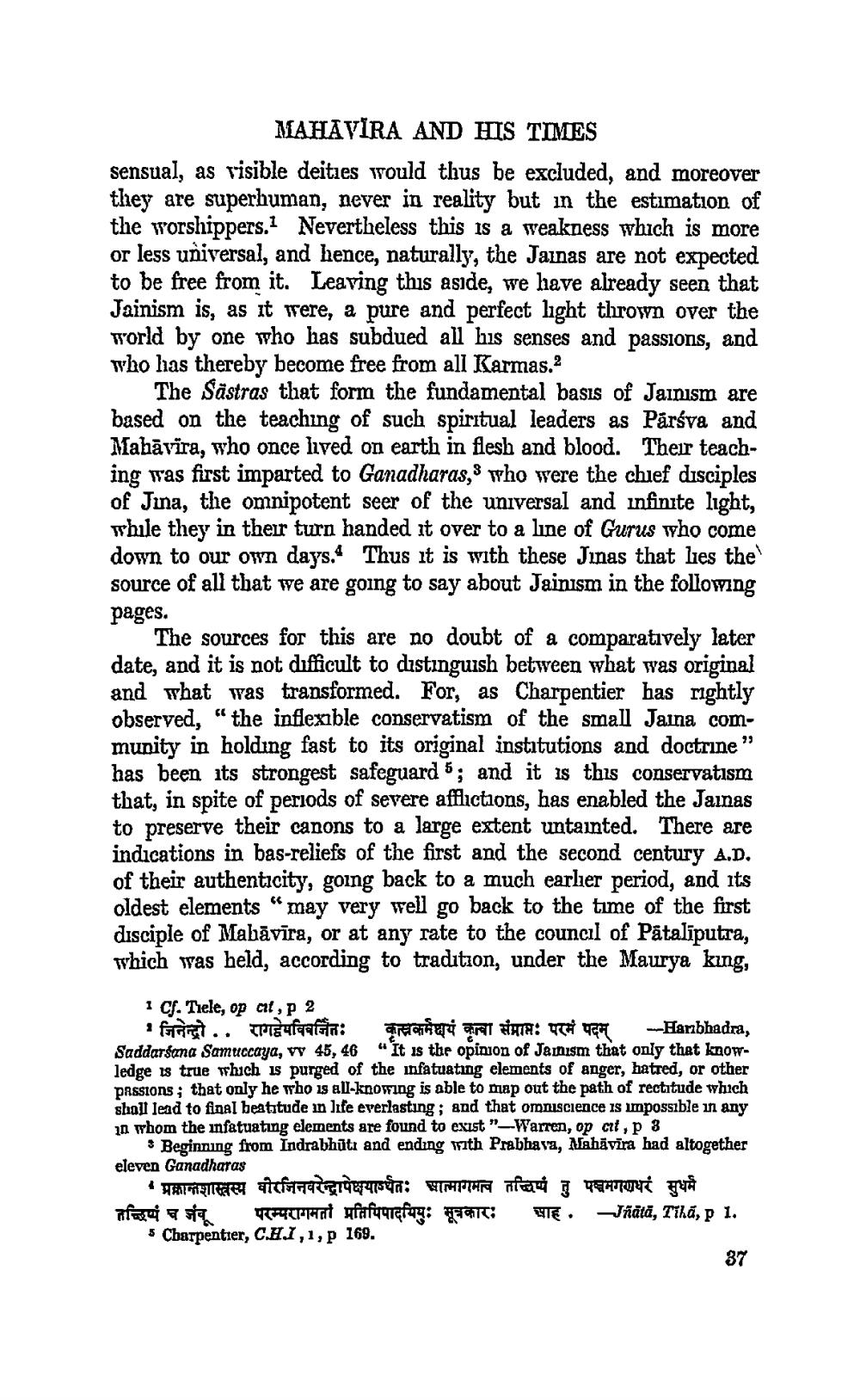________________ MAHAVIRA AND HIS TIMES sensual, as visible deities would thus be excluded, and moreover they are superhuman, never in reality but in the estimation of the worshippers. Nevertheless this is a weakness which is more or less universal, and hence, naturally, the Jainas are not expected to be free from it. Leaving this aside, we have already seen that Jainism is, as it were, a pure and perfect light thrown over the world by one who has subdued all his senses and passions, and who has thereby become free from all Karmas. The Sastras that form the fundamental basis of Jainism are based on the teaching of such spiritual leaders as Parsva and Mahavira, who once lived on earth in flesh and blood. Their teaching was first imparted to Ganadharas, who were the chief disciples of Jina, the omnipotent seer of the universal and infinite light, while they in their turn handed it over to a line of Gurus who come down to our own days. Thus it is with these Jinas that lies the source of all that we are going to say about Jainism in the following pages. The sources for this are no doubt of a comparatively later date, and it is not difficult to distinguish between what was original and what was transformed. For, as Charpentier bas rightly observed, "the inflexible conservatism of the small Jaina community in holding fast to its original institutions and doctrine" has been its strongest safeguard ; and it is this conservatism that, in spite of periods of severe afflictions, has enabled the Jainas to preserve their canons to a large extent untainted. There are indications in bas-reliefs of the first and the second century A.D. of their authenticity, going back to a much earlier period, and its oldest elements "may very well go back to the time of the first disciple of Malavira, or at any rate to the council of Pataliputra, which was held, according to tradition, under the Maurya king, ClTrele, op al, p 2 FORT.. aran: Y ENT HA: CH CH --Harbhadra, Saddarsana Samuccaya, vv 45, 46 "It is the opinion of Jainism that only that knowledge is true which is purged of the infatuating elements of anger, hatred, or other passions; that only he who is all knowing is able to map out the path of rectitude which shall lead to final beatitude in life everlasting; and that onscience is impossible in any in whom the infatuating elements are found to exist "-Warren, op cit, p 3 Beginning from Indrabhuti and ending with Prabhava, Mahavira had altogether eleven Ganadharas * प्रकानशास्त्रस्य पौरजिनवरेन्द्रापेक्षयायतः मात्मागमत्व तचियं तु पचमगण्यरं सुधर्म fe s ta MMC ufafanrefag: ETC WIE JMata, Tiha, p 1. Charpentier, C.H.7,1, p 169.




